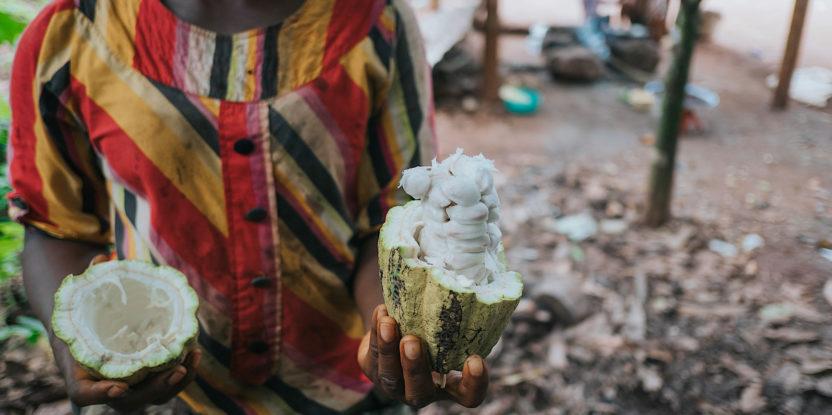
The African continent is the biggest producer of some of the world’s most loved commodities. But is it taking home its fair share? Forests News caught up with World Agroforestry (ICRAF) scientists Peter Akon Minang and Dietmar Stoian at 2019’s 4th World Agroforestry Congress in Montpellier.
So Peter, in 2019, why agroforestry?
Well for three important reasons, I think the first reason for agroforestry in 2019, is that agroforestry occupies 1 billion hectares in the world. It has the potential for capturing and storing 16 years of deforestation – so if it’s holding the equivalent of 16 years of deforestation, then it is worth something to look at. I think the second reason for us, especially in Africa, as to why agroforestry is important is because agroforestry is the basis of at least 12-15 economies, and therefore it looks after livelihoods of millions of people, and it’s actually important for enabling these countries to run. And I think the third reason is that there is one land use that is capable of mediating between biodiversity loss and natural forest and farmland, and bringing [it] back through an agroecological approach, is agroforestry.
You mentioned in your presentation that Africa is a continent that is producing some of our most loved commodities – cocoa, coffee – are they taking home their fair share of the market profits?
No, not at this time. I think there has been some improvements over the years, but still the poor farmers take a very, very small share of the global value of cocoa in particular. Coffee a little bit more, as certification has helped a little bit, but cocoa, we are between 12-20 percent maximum, of the global value of cocoa.
So Africa takes between 12 – 20 percent of the total global value chain of cocoa, how much does it produce?
Africa currently produces between 75 – 80 percent of all the raw cocoa beans consumed in the world. So if you compare that to 12 – 20 percent maximum, that tells it all.
That’s a lot of money leaving the continent
Yes
So how can certification help?
The Fairtrade certification has been a good part of this story. I think it’s helped a lot in enabling first of all companies farmers and actors in reducing deforestation, that’s the first thing. That all [new] farms created on forest [land] are not acknowledged and recognised globally. I think the second thing that it’s done is reduced child labor, by bringing in some controls on child labor in cocoa farms, and so many more children are now going to school- [certification] has incentivized that. And I think the third thing it has done for coffee, is that it has helped ensure a premium is paid to farmers. In cocoa- in a few places, yes- but there is a huge gap between the certification on cocoa, and the certification on coffee. Cocoa is lagging behind, coffee is a bit more advanced. Oil palm and rubber in Africa is really lagging behind, there is really very little certification going on at the moment. So we hope that with time there’ll be more changes, that Africa can catch up, and certification can be more agile, and a bit more responsive to the needs of the continent.
Read and watch Dietmar Stoian in conversation discussing value chains and markets: If cocoa prices have fallen, why isn’t your chocolate bar cheaper?
Some of the answers have been slightly altered for better readability, with an effort not to change the meaning of the text.
We want you to share Forests News content, which is licensed under Creative Commons Attribution-NonCommercial-ShareAlike 4.0 International (CC BY-NC-SA 4.0). This means you are free to redistribute our material for non-commercial purposes. All we ask is that you give Forests News appropriate credit and link to the original Forests News content, indicate if changes were made, and distribute your contributions under the same Creative Commons license. You must notify Forests News if you repost, reprint or reuse our materials by contacting forestsnews@cifor-icraf.org.